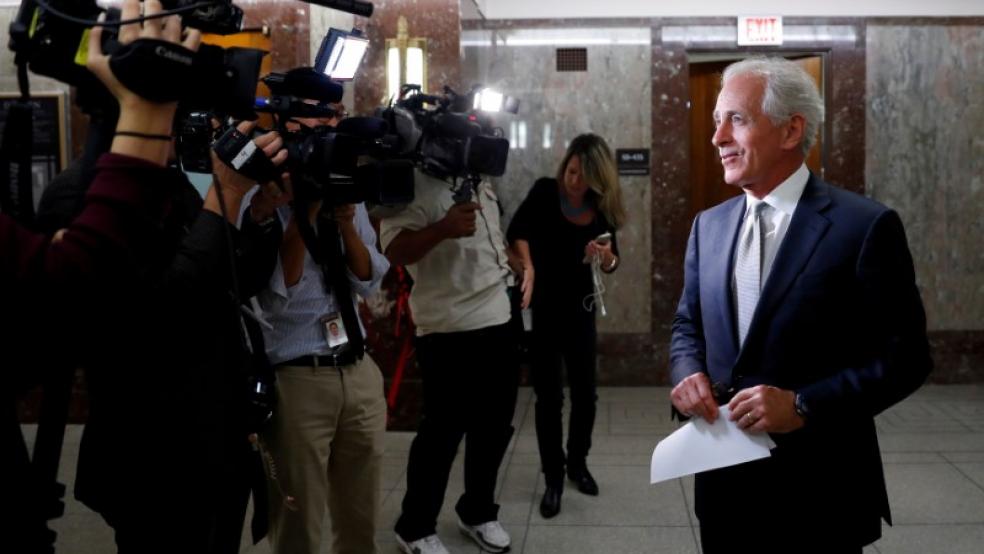President Trump’s escalating series of back-and-forth barbs with Sen. Bob Corker (R-TN) threatens what the administration says is its top priority: tax reform. The GOP’s slim majority in the Senate means Trump can ill-afford to further alienate Senators from his own party if he’s serious about passing his tax cut package. “Make no mistake, going after Corker will make it harder for Trump to get his way on both tax cuts and the Iran deal,” The Washington Posts’ James Hohmann wrote Monday. And a “top lobbyist” was even more emphatic in a poorly punctuated text message to Axios’s Mike Allen: “Bye, bye tax reform."
On the other hand, Corker’s vote on tax reform wasn’t assured even before the latest spat. The senator has said he won’t vote for a plan that adds “one penny to the deficit,” though he’s left himself some room on that calculation by adding that he is willing to accept a “reasonable” measure of economic feedback effects as well as budget baseline for calculating the tax plan’s cost that critics call a gimmick. And the White House has tried to create some additional wiggle room for the tax plan by courting a few moderate Democratic senators up for reelection in states that he won in 2016, including Joe Donnelly of Indiana, Heidi Heitkamp of North Dakota and Joe Manchin of West Virginia.
Even so, if Corker — freed from some political reckoning because of his decision not to seek reelection after his term ends next year — won’t support the tax plan, its path to passage gets very narrow, as Vox’s Dylan Matthews explains:
“Without Corker’s support for a package, Trump would be down to only 51 Republican senators supporting a tax plan. When you consider that includes relative moderates like Susan Collins (R-ME) and Lisa Murkowski (R-AK), and wild cards like Rand Paul (R-KY), who has criticized the tax reform package already, Trump and Senate Majority Leader Mitch McConnell have very little room to maneuver and can’t afford basically any defections.
Under such conditions, the normal political play would be to avoid antagonizing any potential GOP opponents of the law, to keep them all on board as long as possible. It seems Trump has chosen a somewhat different strategy.”
That strategy won’t go unnoticed by other Senate Republicans, meaning it carries risks beyond Corker. Many of those GOP senators now also face the prospect of primary challenges backed by Trump’s former chief political strategist Steve Bannon, who is targeting every GOP senator up for reelection next year except Ted Cruz (R-TX), as Bloomberg reported last night. As The Washington Post’s Tory Newmyer writes, the question then becomes “how many of these incumbents will decide, all things considered, it’s simply not worth it to hustle for reelection in a GOP that feels increasingly unfamiliar — and follow Corker’s lead instead?"
The combination of the president's attacks and Bannon's political machinations could mean that, as Newmyer suggests, "Trump could soon be facing a lame-duck caucus full of once-reliable votes for a tax overhaul that would be suddenly less responsive to appeals for party unity.”
This article has been updated.





